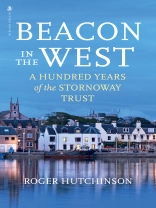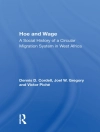In 1918 Lord Leverhulme bought the island of Lewis with ambitious plans to massively expand its fishing industry and increase its population.
In 1923, when his plans had failed, he offered it free of charge to the islanders in two parts. One part, which included impoverished rural areas, was economically unviable. But the other, based around the busy fishing port and administrative centre of Stornoway, was a different matter. In accepting Leverhulme’s offer, the hardheaded, churchgoing business class of Stornoway took on the responsibility of making the radical slogan ‘Land for the People’ a reality. It was an unlikely coupling, but it worked to perfection.
The 20th century was a tumultuous time for Lewis. Migration and depopulation were exacerbated by two world wars. Such problems could not be addressed in the lottery of private landownership, but in the stable, democratic government of the Stornoway Trust, town and country alike would weather the storms.
Roger Hutchinson tells the story of those storms, and of the people who guided their pioneering estate into the relative security and prosperity of the 21st century. In doing so he paints a vivid portrait of a unique landholding experiment, of Highland land struggle and of the island of Lewis itself.
Giới thiệu về tác giả
Roger Hutchinson is an award-winning author and journalist. After working as an editor in London, in 1977 he joined the West Highland Free Press in Skye. Since then he has published thirteen books, including Polly: the True Story Behind Whisky Galore. He is still a columnist for the WHFP, and has written for BBC Radio, The Scotsman, The Guardian, The Herald and The Literary Review. His book The Soap Man (Birlinn 2003) was shortlisted for the Saltire Scottish Book of the Year (2004) and the bestselling Calum’s Road (2007) was shortlisted for the Royal Society of Literature’s Ondaatje Prize.












